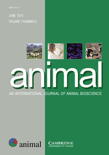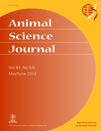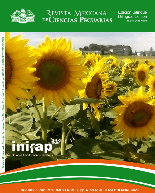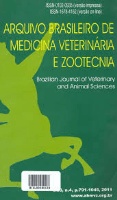
Animal
Scope & Guideline
Exploring the intricacies of animal biology and behavior.
Introduction
Aims and Scopes
- Animal Health and Welfare:
Research on factors influencing animal health and welfare, including stress responses, disease management, and the impact of husbandry practices. - Nutritional Sciences:
Investigations into animal nutrition, including dietary formulations, nutrient digestibility, and the effects of feed components on growth and production traits. - Genetics and Breeding:
Studies focusing on genetic variations, breeding strategies, and genomic analyses aimed at improving productivity, disease resistance, and sustainability in animal populations. - Environmental Impact and Sustainability:
Research assessing the environmental impacts of livestock production, including greenhouse gas emissions, resource utilization, and sustainable farming practices. - Behavioral Sciences:
Exploration of animal behavior in response to various management practices, environmental conditions, and social interactions. - Reproductive Biology:
Studies on reproductive physiology, management practices, and technologies to enhance fertility and reproductive success in livestock. - Production Systems:
Research on different animal production systems (e.g., organic, conventional) and their impacts on productivity, animal welfare, and environmental sustainability.
Trending and Emerging
- Sustainable Livestock Production:
There is an increasing focus on sustainability in livestock production, including studies on reducing the carbon footprint, improving resource efficiency, and enhancing animal welfare. - Precision Livestock Farming Technologies:
Emerging technologies for monitoring and managing livestock, such as automated feeding systems and sensor-based health monitoring, are gaining prominence in recent publications. - Nutritional Interventions for Health Optimization:
Research into nutritional strategies aimed at enhancing animal health, resilience, and performance through functional feeds, probiotics, and dietary supplements is trending. - Animal Welfare and Ethics:
There is a growing body of work focused on the ethical aspects of animal husbandry, including welfare assessments, social implications of farming practices, and consumer perceptions. - Genomic and Molecular Approaches:
The use of genomic and molecular tools to enhance breeding programs and understand the genetic basis of traits related to health, productivity, and environmental adaptability is on the rise. - Microbiome Research:
An increasing number of studies are investigating the role of the microbiome in animal health, nutrition, and production efficiency, highlighting its importance in livestock management.
Declining or Waning
- Traditional Breeding Practices:
There is a noticeable decline in publications focused solely on traditional breeding practices, as the field increasingly shifts towards genomic selection and precision breeding techniques. - Single-species Management Studies:
Research centered on single species management is becoming less prominent; the journal is moving towards more integrative studies that address multi-species interactions and ecosystem management. - Basic Animal Physiology:
Basic physiological studies, while still important, are being overshadowed by applied research focusing on practical outcomes related to animal welfare, production efficiency, and environmental sustainability. - Conventional Feed Formulations:
Research on conventional feed formulations is waning as there is a growing emphasis on alternative feeds, such as insect-based and plant-derived supplements that promote sustainability. - Veterinary Pharmacology:
The focus on traditional veterinary pharmacology topics is decreasing, likely due to the rise of alternative health management strategies and the emphasis on reducing antibiotic use in livestock.
Similar Journals

ANIMAL SCIENCE JOURNAL
Uncovering Insights for a Sustainable Future in Animal SciencesAnimal Science Journal, published by Wiley, stands as a premier platform for advancing knowledge in the fields of Agricultural and Biological Sciences, Animal Science and Zoology, and Food Science. With an ISSN of 1344-3941 and an E-ISSN of 1740-0929, this journal not only enjoys a commendable Q2 ranking across multiple categories, reflecting its significance and impact within the academic community, but it also ranks within the top percentiles in terms of Scopus rankings. Operating out of the United Kingdom, the journal covers a broad spectrum of research topics relevant to animal science, encompassing both theoretical insights and practical applications. While it is not an open access journal, it remains an essential resource for researchers and practitioners eager to enhance their understanding of animal sciences, contribute to ongoing debates, and stay abreast of the latest findings from 2003 through 2024. Scholar engagement and innovative research are central to the journal’s objectives, making it an invaluable asset for students, professionals, and academics alike.

REVISTA CIENTIFICA-FACULTAD DE CIENCIAS VETERINARIAS
Unlocking insights for a sustainable future in veterinary science.REVISTA CIENTIFICA-FACULTAD DE CIENCIAS VETERINARIAS, published by the Universidad del Zulia, is a prominent open-access journal dedicated to advancing the fields of veterinary science, animal science, and food science. Since its inception in 1997, the journal has served as a vital platform for disseminating quality research and fostering academic dialogue among professionals and scholars in the veterinary and agricultural sectors. With its commitment to open access since 2010, the journal aims to make valuable research freely accessible to a global audience, thereby contributing to the advancement of scientific knowledge. Although currently categorized in the bottom quartile of various fields—including Animal Science and Zoology, Food Science, and Immunology—REVISTA CIENTIFICA-FACULTAD DE CIENCIAS VETERINARIAS is dedicated to nurturing innovative research that addresses pressing challenges in veterinary and related sciences. Researchers, professionals, and students will find this journal to be an important resource for quality studies that have implications for animal health, food safety, and biotechnology in the context of Venezuelan and international landscapes.

Revista Mexicana de Ciencias Pecuarias
Bridging Gaps in Animal Science for a Sustainable TomorrowRevista Mexicana de Ciencias Pecuarias, published by INIFAP-CENID PARASITOLOGIA VETERINARIA, is a prominent open-access journal since 2010 that caters to the fields of Animal Science and Veterinary Medicine. Based in Mexico, this journal addresses critical issues in animal health, production, and welfare, making it instrumental for researchers, professionals, and students seeking to advance their knowledge and practices. With an impact factor that reflects its growing influence, particularly in the Q3 quartile rankings in both Animal Science and Zoology as well as Veterinary (Miscellaneous) categories, the journal provides a vital platform for the dissemination of innovative research and findings. Additionally, its Scopus Ranks position highlights its role in publishing significant contributions to the fields of Veterinary Science and Agricultural Biology. The journal fosters a collaborative learning environment through its open-access model, ensuring that valuable insights are accessible to a wide audience. For those committed to enhancing animal well-being and advancing veterinary practices, the Revista Mexicana de Ciencias Pecuarias stands as a key resource through its rigorous peer-reviewed publication process and commitment to scientific excellence.

Ankara Universitesi Veteriner Fakultesi Dergisi
Pioneering research in veterinary sciences and animal biology.Ankara Universitesi Veteriner Fakultesi Dergisi is a prominent academic journal published by ANKARA UNIV, focusing on advancements in veterinary sciences and animal biology. Since its inception, the journal has been committed to disseminating high-quality research, featuring articles that span a variety of topics within veterinary medicine and animal science. With an ISSN of 1300-0861 and an E-ISSN of 1308-2817, this journal provides valuable insights into the latest research developments and trends, making it a critical resource for researchers, professionals, and students in the field. The journal has established itself within the scholarly community, achieving a Q3 rank in Animal Science and Zoology and a Q2 rank in Veterinary (miscellaneous) as of 2023, reflecting its growing relevance and impact. Positioned in Turkey, it serves as a vital platform for both local and international scholars to share innovative findings and foster collaboration. Enhancing its accessibility, the journal's content is available through various academic databases, ensuring that its readership can effortlessly access and engage with cutting-edge research.

ARQUIVO BRASILEIRO DE MEDICINA VETERINARIA E ZOOTECNIA
Bridging knowledge gaps in veterinary and animal sciences.ARQUIVO BRASILEIRO DE MEDICINA VETERINARIA E ZOOTECNIA, an esteemed publication in the field of veterinary medicine and animal science, has been a vital resource for researchers and professionals since its inception in 1996. Published by the ARQUIVO BRASILEIRO MEDICINA VETERINARIA ZOOTECNIA, this journal is recognized for its open-access model, allowing widespread dissemination of knowledge since 1999. With a 2023 Scopus ranking placing it in the 25th percentile within the veterinary field, ARQUIVO BRASILEIRO is categorized in Q3 in Veterinary (miscellaneous), highlighting its commitment to scholarly excellence. The journal's scope encompasses a diverse range of topics related to veterinary medicine and zootechnics, making it a crucial platform for advancing research and professional practice. Situated in Belo Horizonte, Minas Gerais, Brazil, it serves not only the local community but also an international audience, fostering collaboration and innovation in veterinary sciences. As such, ARQUIVO BRASILEIRO is an invaluable asset for students, researchers, and practitioners looking to stay at the forefront of veterinary research.

INDIAN JOURNAL OF ANIMAL SCIENCES
Transforming animal sciences with impactful research.INDIAN JOURNAL OF ANIMAL SCIENCES, published by the Indian Council of Agricultural Research, is a vital resource for researchers and professionals in the fields of animal science and veterinary studies. With its ISSN 0367-8318, the journal has been in circulation since 1971, providing a platform for innovative research and scholarly discourse. Despite its current Q4 ranking in Animal Science and Zoology and a Q3 ranking in Veterinary (miscellaneous), the journal aims to enhance its impact by promoting high-quality research that addresses the challenges in animal husbandry and veterinary practices in India and beyond. The journal does not operate under an Open Access model, which may limit certain dissemination opportunities; however, it remains indexed in Scopus, with a focus on elevating the standards of animal sciences. The INDIAN JOURNAL OF ANIMAL SCIENCES is pertinent for anyone looking to contribute to or stay informed about significant developments in animal sciences.

ANIMAL SCIENCE PAPERS AND REPORTS
Pioneering Insights in Animal Science and Veterinary AdvancementsANIMAL SCIENCE PAPERS AND REPORTS, published by the Polish Academy of Sciences, Institute of Genetics and Animal Biotechnology, is a distinguished platform for interdisciplinary research reflecting the evolving fields of Animal Science, Biotechnology, and Genetics. With an ISSN of 0860-4037 and an E-ISSN of 2300-8342, this journal serves as an essential resource for researchers and professionals aiming to advance their understanding and apply innovative methodologies in veterinary science and animal biotechnology. Despite being classified in Quartile 4 across several categories in 2023 and noting a notable country-based focus in Poland, it continues to provide valuable insights into animal genetics and biotechnological advancements, particularly as it converges its content from 2007 to 2024. While currently not an open access journal, ANIMAL SCIENCE PAPERS AND REPORTS is committed to upholding academic rigor, making it a key asset for students, researchers, and industry professionals looking to contribute to and stay informed in these vital scientific areas.

Animal Reproduction
Unveiling the mysteries of animal reproduction for global impact.Animal Reproduction is a premier open-access journal published by the Brazilian Coll Animal Reproduction, focusing on the dynamic field of reproductive biology within both veterinary science and animal husbandry. Established in 2004, the journal has rapidly gained prominence, securing a Q2 ranking in both Animal Science and Zoology as well as veterinary disciplines as of 2023. With a growing impact factor and an engaged readership, Animal Reproduction serves as a vital platform for researchers, professionals, and students seeking to disseminate and gain insights into the latest studies and innovations in animal reproductive health and technology. Based in Brazil, the journal's content spans a wide array of topics essential for advancing the scientific understanding of reproduction in animals, thus contributing to improved practices in veterinary medicine and livestock management. The journal is indexed in major databases such as Scopus, ensuring that the research published is accessible to a global audience. Whether you're a seasoned researcher or a student looking to deepen your knowledge, Animal Reproduction is indispensable for anyone engaged in this critical area of study.

Scientific Papers-Series D-Animal Science
Elevating Standards in Veterinary Medicine and Animal CareScientific Papers-Series D-Animal Science is a prominent academic journal published by the University of Agronomic Sciences and Veterinary Medicine Bucharest (USAMV). With its ISSN number 2285-5750 and E-ISSN 2393-2260, this journal serves as a critical platform for the dissemination of innovative research in the field of animal science and veterinary medicine. The journal focuses on a broad range of topics, from animal breeding and nutrition to health and welfare, contributing significantly to the advancement of knowledge and practice within these vital areas. Although it currently does not offer open access, the journal maintains a commitment to high-quality research with the potential to influence policy and practice in animal sciences. Researchers, professionals, and students are encouraged to engage with the journal to enhance their understanding and contribute to ongoing discussions in this essential field. The journal's rich academic environment fosters collaboration and encourages submissions of original studies, reviews, and case reports that can shape the future of animal science.

Translational Animal Science
Advancing Animal Health Through Innovative ResearchTranslational Animal Science, published by Oxford University Press Inc, stands as a prominent journal in the fields of Animal Science and Zoology as well as Veterinary Sciences, achieving a commendable Q2 ranking in both categories for 2023. With an E-ISSN of 2573-2102 and transitioning to an Open Access model since 2017, this journal fosters accessibility and dissemination of vital research that bridges the gap between basic animal science and its practical applications. The journal's significant impact factor, where it ranks in the 71st and 65th percentiles respectively for Veterinary and Agricultural and Biological Sciences disciplines, highlights its importance as a resource for emerging trends and innovations in animal research. With submissions accepted until 2024, Translational Animal Science not only contributes to advancing knowledge but also aims to engage a broad audience of researchers, professionals, and students dedicated to improving animal health and welfare. Based in India, the journal serves as an essential platform for the exchange of scientific ideas that facilitate progress within these vital fields.